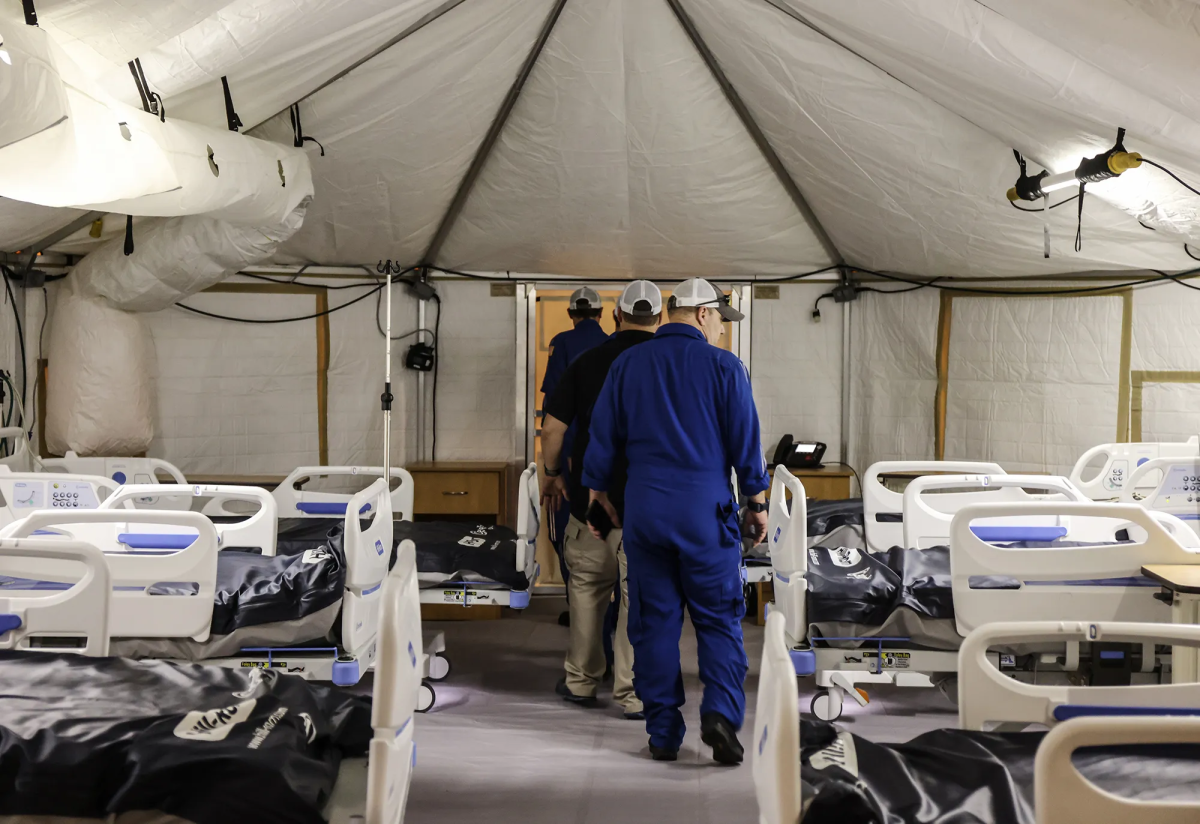As the healthcare crisis worsens, many hospitals throughout Mississippi are in imminent threat of shutting down.
According to Mississippi Today, “The Mississippi State Department of Health, an agency that has been gutted by budget cuts and weakened services over the past decade, was not staffed nor funded to take on the full burden of replacing health care services lost if hospitals close.”
In another article by Mississippi Today, Dr. Daniel Edney, a Mississippi state health officer stated, “If we had 60 states, we’d be 60th in health. Someone has to be 50th, but it doesn’t have to be us.”
Problems in Mississippi Health Care
Due to many problems such as access to healthcare facilities, shortage of healthcare professionals, high rates of chronic illness, and socioeconomic inequalities, “Mississippi’s health system performance has been deemed the worst in the country.”
Devastating Health Care Facilities
One of the biggest problems in Mississippi is the lack of healthcare facilities in the area.
Journalist Larrison Campbell states, “Mississippi has more rural hospitals at risk of closing than any other state in this country.” This means “the most medically underserved state could soon lose even more doctors.”
Campbell also talks about how thirty-one of Mississippi’s sixty-four rural hospitals are at “high financial risk.”
In 2023, tornados devastated Rolling Fork, Miss. According to Charles Weissinger, attorney for the Issaquena County Board of Supervisors, “Sharkey Issaquena Community Hospital lost power.” Weissinger also mentioned that the emergency room was “blown away.”
Meanwhile, “Delta Health Center based in Rolling Fork was ‘split in half,’” according to their clinic’s Facebook page.
This led to healthcare professionals having to work in fully operational mobile field hospitals as a temporary solution.
In reality, this means healthcare professionals in Rolling Fork are doing surgery in medical tents instead of a safer and more professional environment.
Health Care Shortage
Furthermore, a huge problem for the Mississippi health care system is its lack of health care professionals.
According to an article by The Center Square, “In Mississippi, there are 5,857 active physicians, or 198.5 for every 100,000 people, the second fewest among states.”
Mississippi Clarion Ledger also reports, “There are almost 3,000 registered nurse vacancies in Mississippi pushing the state’s hospitals to the brink of failure.”
Chronic Illness in Mississippi
Through Mississippi health care there is an enormous amount of chronic illness.
The Center for Disease Control and Prevention states, “cardiovascular disease (CVD) is the leading cause of death in Mississippi.”
The CDC reveals that diseases such as obesity, diabetes, hypertension, and heart diseases are skyrocketing in Mississippi.
A nagging chronic health crisis in Mississippi deals with maternal and fetal health rates.
Mississippi Today states, “In August, the Delta’s only neonatal intensive care unit in Greenville closed. Greenwood Leflore Hospital has eliminated labor and delivery and other major services over the last several months.”
Mississippi Mortality Review Committee assessed the state’s maternal mortality data from 2017-2019. This found that Mississippi’s pregnancy-related mortality ratio was 33.2 deaths per 100,000 live births.
This national ratio for the pregnancy-related mortality ratio is 17.6 deaths per 100,000 live births according to the CDC.
In another article by Mississippi Today, “the pregnancy-related mortality ratio for Black women was 51.9 deaths per 100,000 live births.” This is almost three times the white ratio of 18.9 deaths.
Inequality in the Healthcare System
Socioeconomic inequality found in Mississippi’s health care system compounds in the last situation.
A report from Commonwealth fund reported that there are deeply rooted racial health care inconsistencies throughout all the 50 states, however Mississippi tends to have many more than anywhere else in the nation.
Journalist Will Stribling states, “Mississippi’s health system scores in the 8th percentile for Black residents, but much higher for white residents, in the 38th percentile. Compared to 38 states with large Black populations, Mississippi’s health system ranks 37th overall.”
These statistics show a vast difference between the treatment of black and white residents within Mississippi, especially when the African American population takes up 37.53%, according to Neilsburg Research.
Looking Forward
To aid the failing healthcare system in Mississippi, government officials can begin taking charge by expanding Medicare, increasing access to primary care in rural areas, and developing the workforce.
Mississippi Today reports, “Mississippi is one of 12 states that haven’t expanded Medicaid under the Affordable Care Act. Doing so would allow thousands of low-income Mississippians eligible for tax credits through the ACA marketplace.”
Government officials also need to decide whether they want to work to keep more rural facilities open, and aid in their efforts to have more primary care facilities closer to low-income areas.
Finally, Mississippi needs more healthcare workers. This can be done by better funding in more of the college’s nursing or medical schools throughout Mississippi.
Another way to avoid the unemployment crisis would be to offer higher salaries to out-of-state residents, to sway them to work in Mississippi.
By simply working harder to find the money to aid healthcare in Mississippi, Mississippi could finally move from the bottom of the list and become a successful and healthier state all around.




